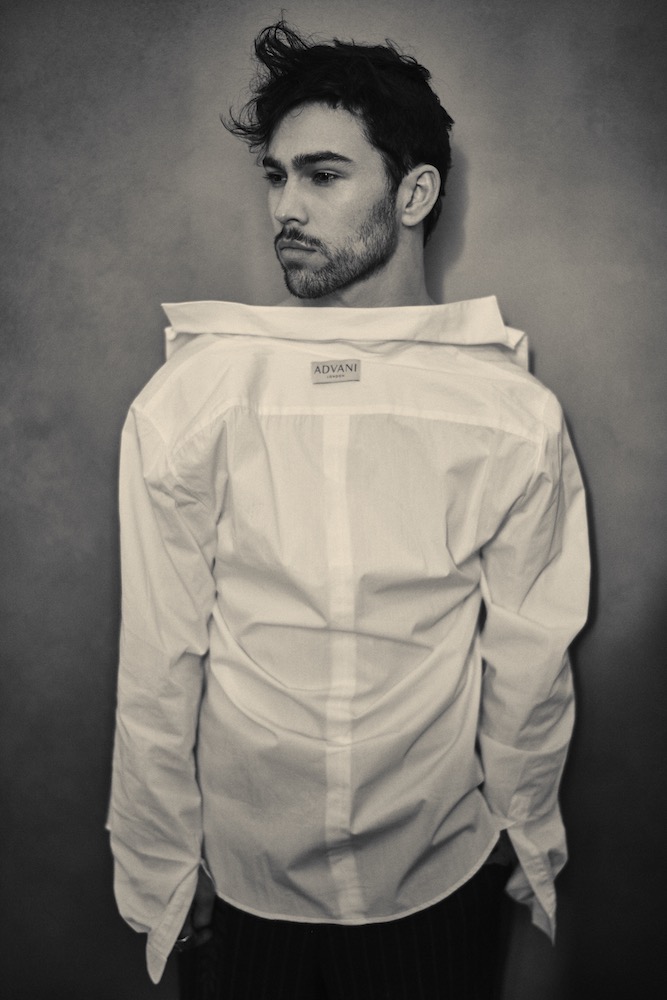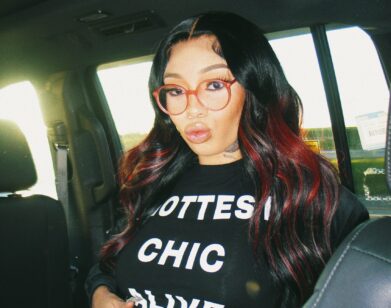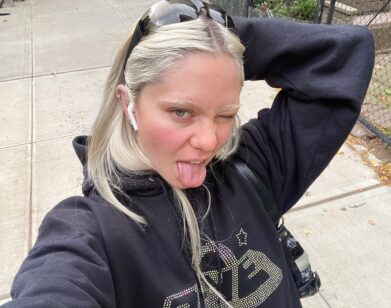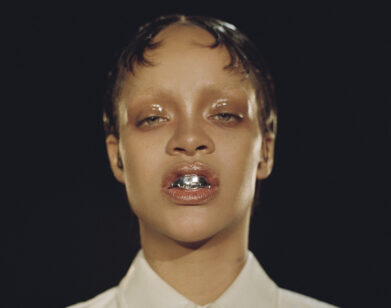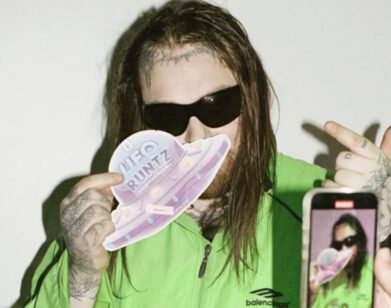MAX
MAX SCHNEIDER IN NEW YORK, APRIL 2016. PHOTOS: CHRISTIAN ANWANDER/HONEY ARTISTS. STYLIST: BRITT MCCAMEY/HONEY ARTISTS. HAIR: WILLIAM SCAEDLER FOR LIVING PROOF. MAKEUP: DEANNA MELLUSO USING MAC COSMETICS AT THE WALL GROUP. PHOTO ASSISTANTS: MATTHEW HAWKES AND LENNY KOHLMAYER. STYLIST ASSISTANT: RENEE HUFFMAN. SPECIAL THANKS: ATTICUS STUDIOS, LONG ISLAND CITY, N.Y.
Known to his fans only as MAX, Max Schneider has been performing since he was three years old. Growing up in New York, Schneider was introduced to Broadway early in life, and soon went on to understudy multiple roles in the musical 13. At the tender age of 17, he then starred in a Dolce & Gabbana campaign alongside Madonna. As YouTube began producing its own viral superstars, Schneider amassed an unseemly amount of views for DIY music projects, plus 1.2 million channel subscribers. This led to his role in Disney’s How to Rock (2012), and later to a role in 2014’s Love & Mercy alongside Paul Dano, John Cusack, and more.
Last year, Schneider signed to Pete Wentz’s label DCD2 and on Friday, the 23-year-old released Hell’s Kitchen Angel, an album that nods to his childhood Manhattan neighborhood and marks a bold move forward in his musical career. Pairing his lithe tenor with an innate sense of soulful pop, Schneider is ready to be recognized for more than just his work as a child star. Just before the release, we spoke to him about Hell’s Kitchen Angel, a pregnancy scare that inspired one of his most vulnerable tracks, and his unexpected appreciation for the punk rock mentality.
MATHIAS ROSENZWEIG: The name of your album comes from your being born in raised in Hell’s Kitchen, New York. How did living in the city affect you in a musical sense?
MAX SCHNEIDER: When you live in New York, there’s so much culture and diversity all around you. Even on the subway, there’s a street performer, and on the block there’s a saxophone player. The city itself was such a huge thing for me because I had a sick childhood in a way, where throughout high school I grew up very quickly. My parents were always very trusting and let me have the parties at my place, let me do my own thing. You’re on the subway and you’re going everywhere at 14 years old. Whereas, I moved out to L.A. and didn’t get my driver’s license until I was 22. So the interesting thing for me, growing up in this neighborhood, was having that flipped experience of sort of losing my independence when I moved out at 18 and didn’t have the driver’s license and suddenly I couldn’t navigate myself through a place, whereas I could always navigate myself throughout New York.
ROSENZWEIG: I know that when you were in L.A. for four years, you were trying out a lot of different facets of the entertainment industry, like acting and dancing. How did you ultimately decide to focus on music?
SCHNEIDER: I’ve always been into performing in general, but music has always been at the forefront with me, My first gig was this show on Broadway when I was 16. The show, 13, had crazy casting because Ariana Grande was in it with me and Liz Gillies, and it was cool because we were all really young and it was this all teen cast. I loved the show and I loved acting, but it was always about the music. I’ve done some straighter acting in things like Law and Order: SVU and different dramas. I loved having a foot in that world, and it’s always therapeutic to be able jump into that role where you have to portray someone else. With music, you have to be the most truthful; you have to go out there and be vulnerable.
I did a few movies that had music in them—that’s a huge reason why I loved doing this one movie called Rags that I get recognized for a good amount. It’s interesting to me, especially in these days, that a lot of people recognize me for that specific thing. It’s always awesome, but it’s also interesting how people put you in a box very quickly, and that affects you—but that’s just a part of the game.
ROSENZWEIG: As you mentioned, it’s important to be truthful when it comes to music. With that said, I’m curious what kind of themes you find yourself playing with when writing music. Do you see a connection amongst the songs that in turn tells you something about yourself?
SCHNEIDER: I feel like in my writing, I’ve gotten more vulnerable in the last few months. There’s this song called “Home” on the record and that song is about this scared pregnancy I had with a girlfriend and how it was the first time I really re-assessed my life and thought, “Am I ready to be a father at 23 years old?” It makes you realize that it’s not really about age; it’s really about where you are in your life, where you are when you want to get married and have kids. You could be 23, you could be 40, it doesn’t really matter, and it’s about who you are and how ready you are for that. That song is really just about my thoughts flowing through this night where we didn’t know. The next day we would find out if she was pregnant and if we were going to have this kid or not. I think that song is a breakthrough for me in sharing such an experience I guess. She didn’t wind up being pregnant, but it would’ve been beautiful. I can’t wait to be a father one day. I’m not ready yet but I would want to be one, one day.
There’s also a song called “Basement Party” that I did with Jon Bellion, and that song is about my younger life. I never really liked going to clubs because I didn’t have the confidence growing up. I’ve always been a short person, so going to clubs, I’m just in the middle of six guys and I can’t see anything. I can’t talk to anybody. I’ve just been that type of guy where the party’s at my place. So that song is also super truthful to my life.
ROSENZWEIG: I understand that your label is very collaborative and that everyone plays in each other’s shows or appears in their music videos.
SCHNEIDER: There was a time where there were a few artists who had labels who were interested in signing me. I had been with Columbia Records before any of this and I had kind of been on my own since then because at the time it just wasn’t working out. I guess I was cautious because I had been through this bad experience of being shelved when I really just wanted to put music out there. [With Wentz’s label], it is a community, and it is a little gang, and it’s really awesome. [Wentz] realizes that that’s really the only way to make something like this work in a real way. The thing for me is that my music has pop and soul, but I’ve always been in love with the punk rock mentality of it all.
ROSENZWEIG: When it comes to your music videos, how involved are you with the creative development? What is it like figuring out the right visuals to pair with your music?
SCHNEIDER: I’ve always been involved. For me and Kurt Schneider, one of my best friends, YouTube has been an incredible platform. A lot of people think we’re related because we have the same last name, but he got me into the YouTube space. For a while, we independently produced a lot of our own videos and shot them with our own little team. As time has gone on and we’ve gotten bigger budgets for videos and have been able to make bigger videos, I always wanted it to be from the same place, in the back room of my house.
ROSENZWEIG: What would make you feel like this album was a success?
SCHNEIDER: I’ve really started to realize that the success is not in the numbers. What inspires me the most is when someone is truly affected by the album and it’s definitely something they can connect with, or when people come up to me and say it inspired them, that it made a difference for them. When they’re listening in the shower or intensely in their room, if it’s something that they truly connected with then I’m happy. And that’s something I started to realize just in the last year, what success means to me and that’s what I hope to happen [with this album]. I would rather have 10 people connect with it than a million people just hear it once.
HELL’S KITCHEN ANGEL IS OUT NOW. FOR MORE ON MAX, VISIT HIS WEBSITE.

